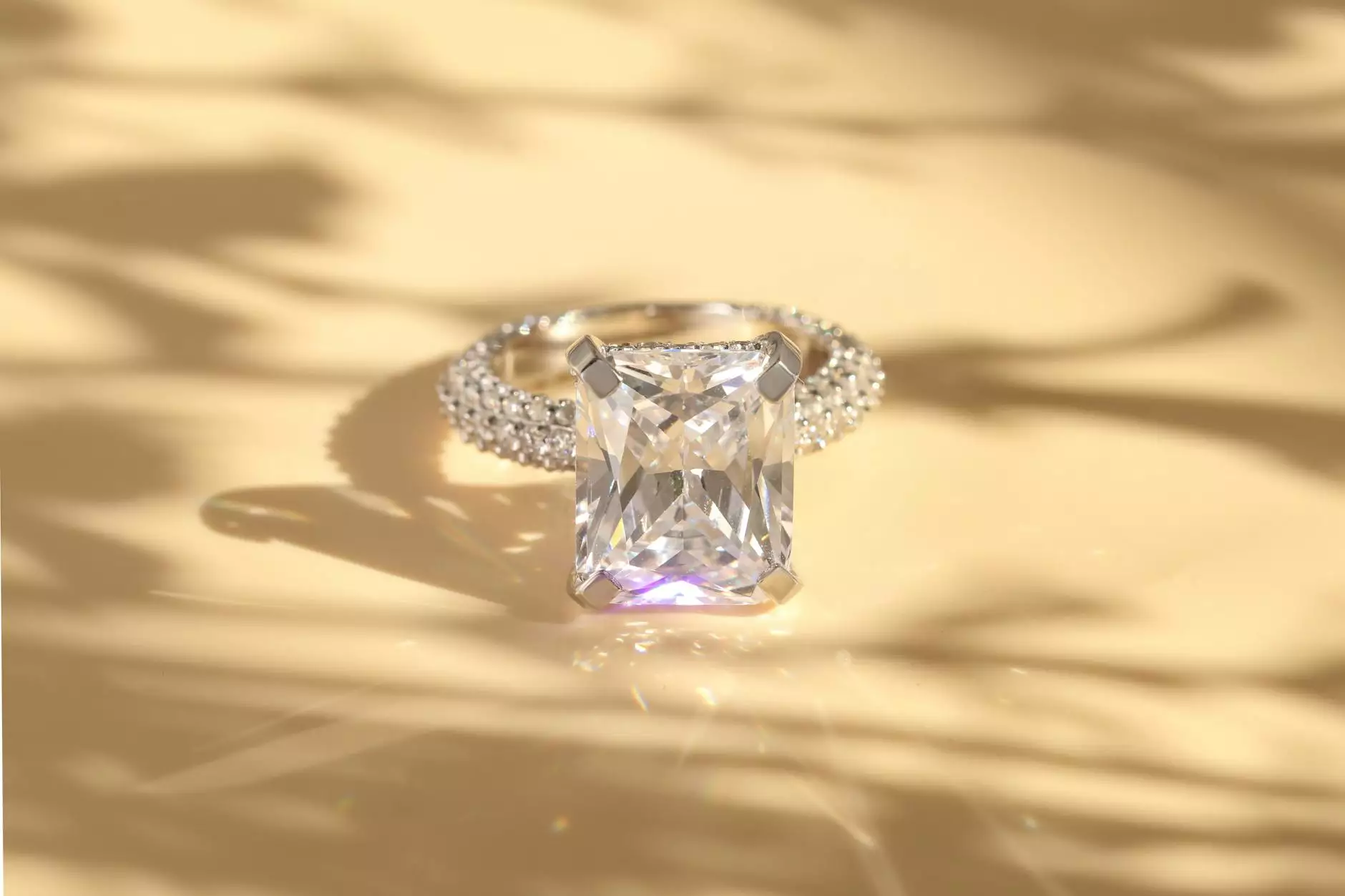Understanding Zirconia Crown Teeth: A Comprehensive Insight

The world of dentistry has advanced significantly, offering patients a range of solutions for achieving healthy and aesthetic smiles. Among these advancements, zirconia crown teeth stand out as a preferred choice for adults seeking both functionality and beauty in their dental restorations. This guide aims to explore the intricacies of zirconia crowns, including their benefits, procedures, and a comparison to other types of dental crowns.
What are Zirconia Crowns?
Zirconia crowns are dental restorations made from zirconium oxide, a tough ceramic material. Known for their durability and natural appearance, these crowns are often used for restoring damaged or decayed teeth, as well as providing an aesthetic solution for patients looking for cosmetic enhancements. Unlike metal crowns, zirconia crowns offer a tooth-colored finish, which can significantly improve the appearance of a smile.
Key Features of Zirconia Crowns
- Strength and Durability: Zirconia crowns are highly durable, making them suitable for areas in the mouth that experience significant biting force.
- Aesthetic Appeal: The natural tooth-like appearance of zirconia makes it an excellent choice for visible teeth.
- Biocompatibility: Zirconia is well-tolerated by the body, reducing the risk of allergic reactions.
- Less Tooth Reduction: The application process requires minimal removal of the existing tooth structure compared to traditional crowns.
Benefits of Zirconia Crown Teeth
Choosing zirconia crowns for your dental needs can come with several advantages:
1. Superior Aesthetic Qualities
The most immediate benefit is undoubtedly their visual appeal. Zirconia crowns can be shaded to match the natural color of your teeth, providing a remarkably seamless look. Unlike metal crowns, which can be dark at the gum line, zirconia crowns blend seamlessly into your smile.
2. Exceptional Strength
Zirconia crowns are incredibly tough. They can withstand significant dental pressure which makes them ideal for molars that endure higher chewing forces. Their longevity means that patients may need to replace them less frequently than other types of crowns.
3. Biocompatibility
Because zirconia is a ceramic, it poses minimal risk of rejection by the body. This is an important consideration for individuals who may have sensitivities or allergies to metals used in dental crowns.
4. Minimal Tooth Preparation
In many cases, fewer adjustments to the natural tooth are needed when fitting zirconia crowns compared to traditional materials. This preservation of healthy tooth structure is essential for maintaining overall dental health.
5. Reduced Sensitivity
With proper fitting, patients often report experiencing less tooth sensitivity compared to crowns made from other materials. This long-term comfort is an appealing aspect of zirconia crowns.
The Process of Getting Zirconia Crowns
Understanding the steps involved in acquiring zirconia crown teeth is crucial for patients. Here’s what to expect:
1. Initial Consultation
Your journey begins with a thorough consultation with a qualified dentist. During this visit, an examination of your teeth will be conducted, along with digital imaging to assess your dental health and plan for the crown.
2. Tooth Preparation
The affected tooth or teeth will be prepared by removing any decay and shaping the remaining structure to allow for optimal crown placement. Often, digital impressions will be taken to create a precise mold of your tooth.
3. Temporary Crown Placement
While your zirconia crown is being fabricated in a dental lab, a temporary crown will be placed to protect your tooth. This ensures that you can eat and speak comfortably during the waiting period.
4. Crown Fabrication
Using advanced CAD/CAM (Computer-Aided Design and Computer-Aided Manufacturing) technology, your zirconia crown is custom-made to match your natural teeth perfectly. This process typically takes one to two weeks.
5. Final Placement
Once the crown is ready, you'll return to the dental office for its placement. The dentist will evaluate the fit, color, and bite, making any necessary adjustments before permanently adhering the crown to your tooth.
Cost Considerations for Zirconia Crowns
The cost of zirconia crown teeth can vary based on several factors including:
- Location: The geographic location of the dental clinic can affect pricing, with urban areas generally being more expensive.
- Complexity: If additional procedures, like root canals or tooth extractions, are needed beforehand, the overall cost may increase.
- Insurance Coverage: Some dental insurance plans may cover a portion of the crown cost. It's essential to verify what your policy includes.
Generally, zirconia crowns are positioned within a higher price range, but their longevity and aesthetic benefits often justify the investment for many patients.
Zirconia Crowns vs. Other Crown Materials
When considering dental crowns, patients may wonder how zirconia stacks up against alternatives like porcelain-fused-to-metal (PFM) crowns, all-ceramic crowns, and gold crowns. Here’s a comparative breakdown:
1. Porcelain-Fused-to-Metal (PFM)
PFM crowns mix two materials for strength and aesthetics. While they can mimic natural teeth, over time the metal underneath may become visible at the gum line. Zirconia crowns eliminate this issue, providing a uniform appearance.
2. All-Ceramic Crowns
All-ceramic crowns are similar to zirconia in aesthetics but may not offer the same level of strength. For rear teeth requiring durability, zirconia is often the preferred choice.
3. Gold Crowns
While gold crowns are exceptionally durable and biocompatible, they lack aesthetic appeal for many patients. Zirconia provides an attractive alternative without sacrificing strength.
Maintaining Your Zirconia Crowns
Proper care is essential to ensure the longevity of your zirconia crowns. Here are some maintenance tips:
1. Regular Dental Visits
Continue to visit your dentist for regular check-ups and cleanings. These visits allow for professional monitoring of your crowns and general oral health.
2. Good Oral Hygiene
Maintain a routine of brushing twice daily and flossing to prevent decay and gum disease around your crowns. Use a non-abrasive toothpaste to protect the crown’s surface.
3. Avoid Hard Foods
While zirconia is strong, it’s wise to avoid chewing on excessively hard items such as ice or hard candies to prevent any potential damage.
4. Consider a Nightguard
If you grind your teeth at night, consider investing in a nightguard to protect your crowns and natural teeth from wear.
Conclusion: The Smart Choice for Dental Restoration
In conclusion, zirconia crown teeth present an exceptional solution for individuals seeking restorative dental options that offer strength, beauty, and comfort. With their remarkable attributes and a range of aesthetic advantages, zirconia crowns may be the ideal choice for enhancing your smile while ensuring the longevity of your dental investments.
At Turkey Dental Clinic, our experienced team is dedicated to delivering high-quality dental services, including the fitting of zirconia crowns. Schedule a consultation today to discuss how we can help you achieve a radiant smile that lasts a lifetime!









